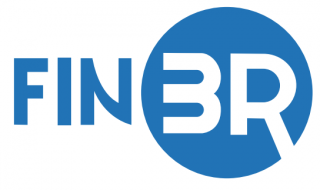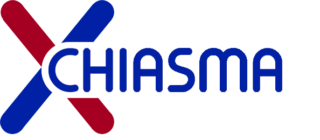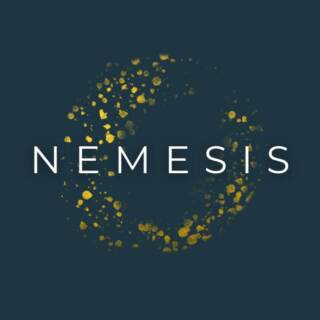Ongoing research projects of FHAIVE

ARCHIMEDES – Data-Driven Integrated Approaches to Chemical Safety Assessment and Drug Design
Archimedes is an ERC-funded multidisciplinary project, supported by Tampere University, aiming to make products safe for consumers, while reducing the number of animals in the experiments. In the work, integration of wet lab and bioinformatics enables goals as new integrated testing approaches to be developed, as well as to establish new paradigm in chemical safety assessment and biomedical data framework covering toxicology and pharmacology. Project is ongoing in the period from 2022-2026. More information could be found here.

LiverTarget – A new generation of advanced RNA therapeutics
LiverTarget is EU funded project aiming to develop an innovative RNA inhibition and activation therapeutics against cardiovascular and metabolic diseases by targeting ceramide synthesis and inflammatory cascades in the liver. Project goals are numerous, focusing on generating innovative siRNA pools and synthetic mRNAs to regulate ceramide and inflammatory targets in the liver; formulating them in established human-approved liver-targeting lipid nanoparticles (LNP); determining their efficiency invivo; and completing safety and toxicology evaluation of the most promising lead candidates. FHAIVE contributes by developing and pre-clinical testing of siRNA drugs. Project is ongoing for the period from 2022-2027. More information could be found here.

SCENARIOS
Scenarios is project funded by EU Horizon 2020. The project aims to develop new knowledge and technology in PFAS toxicology; detect and remove PFAS contaminants from soil and drinking water; develop integrated approached to testing and assessment (IATA) of PFAS; and assist EU countries and institutions in decision-making regarding environmental safety and human health. FHAIVE is putting effort in contributing the IATA of PFAS toxicity. Project is ongoing in the period from 2022-2026. More information could be found here.

Finnish 3R Center – FIN3RC
FIN3R is a cooperation forum for universities, research institutes, authorities and industry that promotes the 3Rs in research and education. The objective is to promote development and use of methods and strategies based on the 3Rs in education and scientific research as well in animal breeding and keeping. This will be accomplished by increasing education and training of the researchers on 3R methods, further the development of these methods, and dissemination of the best practices and information for the researchers. In addition, FIN3R organizes educational events, such as webinars, workshops and symposiums to build a national and international network of the scientists using 3R principles in their work. Project is funded and supervised by TOKES, Council on the Protection of Animals Used for Scientific or Educational Purposes, within the Ministry of Agriculture and Forestry of Finland. The project is ongoing for the period from 2021-2027. More information could be found here.

BIOMAP
Biomap is a project aiming to examine the causes and mechanisms of atopic dermatitis and psoriasis by identifying the biomarkers responsible for the variation in disease outcome. The project aims to indicate the main causes of the diseases as well as its development process; establish pan-European BioResource for research and Clinical Research Network; and predict models and biomarkers of the diseases outcomes and identify disease subtypes. Funding is provided by EU Horizon 2020, Innovative Medicines Initiative (IMI) and European Federation of Pharmaceutical Industries and Associations (EFPIA). Project is ongoing in the period from 2019-2025. More information could be found here.

The final aim of the INSIGHT Project is to establish an integrated framework for mechanistic impact assessment of chemicals and materials. In addition, providing curated and user-friendly FAIR data and computational models and workflows that support the development of the next-generation SSbD chemicals and materials and open, accessible and interactive guidelines, will enable end users and stakeholders to access and operate the framework is a top priority. FHAIVE contributes to this Project with Coordination with the consortium of over 20 partners from the world, as well as leading WP2. Our expertise focuses on the development of integrated mechanistic models of impact, and FAIRifing models for health, environmental, economic and social impact of chemicals. Project is ongoing from 2024-2027, funded by the European Union. More information are available here.

CHIASMA is EU funded project focusing on development and improvement of the SSbD Assessment Framework by validating in vitro and in silico NAMs and risk assessment of the chemicals and materials. In CHIASMA Project, FHAIVE is creating in silico New Approach Methods (NAMs) and guiding the development of NAMs validation strategies. Consortium includes 19 partners from Europe and Asia, coordinated by Luxembourg Institute of Science and Technology. Project is ongoing from 2024-2027. More information could be found here.

Coordinated by the University of Eastern Finland, the NEMESIS Project seeks to enhance our understanding of chemical-induced metabolic disruption and to improve the risk assessment of endocrine disrupting chemicals (EDCs). By integrating state-of-the-art in vitro and in vivo methods, extensive cohort datasets, and systems biology approaches, NEMESIS aims to unravel the underlying mechanisms of EDCs and their mixtures. These efforts are crucial steps towards identifying new biomarkers for chemical-induced metabolic disruption, which are essential for human health risk assessment. As a key partner in the Project, FHAIVE focuses on developing in silico models and analyzing omics data to support the mechanistic investigation of EDCs. The Project is funded by EU, forming a consortium of experts from academia and industry within Europe. The Project is ongoing from 2024-2028. More information can be found here.

The PINK Project aims to create advanced modeling software and integrated workflows for the development of sustainable advanced materials and chemicals through the use of the Safe-and-Sustainability-by-Design (SSbD) framework. PINK brings together an interdisciplinary team of partners with the ambition to push the boundaries of computational approaches in SSbD, leading to industry ready solutions. The Project is conducted at FHAIVE’s branch at the University of Helsinki. FHAIVE brings expertise in mechanistic and computational toxicology, integrating OMICs and adverse outcome pathways into chemical impact assessment through knowledge graphs. Project is ongoing from 2024-2027, supported by the funds of the European Union. More information are available here.
PHOTOBREATHE
PHOTOBREATHE is part of the SUSBIO (Sustainable Biomedical and Toxicological Research)-profiling action on soft materials which was awarded to Tampere University in 2023. SUSBIO aims to develop more sustainable soft materials and advanced in vitro models for the needs of human physiology and disease research.
PHOTOBREATHE focuses on developing advanced pulmonary in vitro models using photoactuable liquid crystal elastomer platforms. We aim to create models, which would better mimic the mechanics of breathing human lungs, and which could lead into better understanding of pulmonary fibrosis, and more accurate chemical safety assessment and drug development. In addition, developing the models to be even more animal-free and reducing microplastic accumulation into the environment are key goals in our research. Project is done in collaboration with Smart Photonic Materials group led by Prof. Arri Priimägi. More information about the project can be found here. The project is ongoing from 2024-2027.
A data-driven approach for in vitro drug testing by integration of phenotypic and target-based drug discovery strategies
A major hurdle for efficient drug development are high failure rates due to lack of efficacy or toxicity of candidate compounds. The aim of this project is to develop an integrated data-driven approach for drug discovery by combining and expanding two existing strategies, a target-centric and a phenotype-centric drug discovery strategy. This aims to optimize the processes of drug selection and in vitro testing enabling an efficient drug development process. This project is a part of the Tampere Institute for Advanced Study fellowship, which will be conducted in FHAIVE until 2026.
A Data-Driven Mechanistic Framework for Advanced Non-Animal Chemical Safety Assessment
GreenNanoBone Project is focused on developing and validating sustainable, biocompatible, bioactive, and antimicrobial 4D materials. The matrix developed in this project is designed to be injectable or printable as a scaffold for use in non-invasive surgical procedures. The project addresses the unmet clinical need of Medical-Related-Osteonecrosis of the Jaw (MRONJ), a severe side effect of bone-targeting agents used by cancer survivors. The sustainable nature of the material is achieved by manufacturing plant-derived nanoparticles from potato food waste side streams. By the end of the project, the goal is to achieve readiness for Phase I clinical trials. FHAIVE participates in molecular studies related to the MRONJ simulation in vitro and the validation of GreenNanoBone in 3D MRONJ in vitro models. FHAIVE will perform transcriptomics analysis of 3D in vitro models exposed to Bisphosphonates. FHAIVE leads the task for the comparative analysis of omics data, integrating multi-omics data (bulk RNASeq, scRNASeq, proteomics) derived from in vitro, in vivo, and human samples using network-based methods to extrapolate the biomaterial’s mechanism of action. The project is funded by the EU for the duration of four years, from 2025-2029. More information is available here.

UPRISE aims to investigate the causal relationship between airborne Ultra Fine Particles (UFP) exposure and the increased risk of Adverse Birth Outcomes (ABO), such as Pre-Term Birth (PTB). A major objective is determining the contribution of Micro Nano Plastics (MNPs) to air pollution levels and exploring if a causal relationship exists for MNP exposure during pregnancy. The methodology is highly interdisciplinary, combining environmental exposure monitoring and advanced modelling with epidemiological birth cohort studies conducted in Valencia (Spain), Hasselt (Belgium), and Thessaloniki (Greece). Research also involves using advanced human-based in vitro models and multiomics analysis to unravel the biological mechanisms of action. The knowledge generated will be used to define safe exposure levels for these pollutants and inform governmental guidelines and policy recommendations.
FHAIVE’s activity will be focused on biological studies and identification of mechanisms of action. FHAIVE leads the task for AOP modelling and Biomarkers selection. FHAIVE is responsible for transcriptomics studies and integrative multiomics analysis. This involves handling and pre-processing transcriptomics data generated via bulk RNA-Sequencing from in vitro exposure studies and cohort samples to characterize molecular signatures underlying maternal exposure to UFP and MNP.
The project is funded by the EU from 2025-2029. More information is available here.

DESIDERATA is a HORIZON Innovation Action that aims to test and validate the Safe and Sustainable by Design (SSbD) framework using selected industrial use cases. The project focuses on substituting substances of concern that possess surfactant, plasticising, and flame retardant properties. Activities are intended to advance industrial value chains in domains like construction, injection moulding, and 3D printing. The secondary goal is to generate lessons learned to support policymakers in refining the applicability and fostering the wider use of the SSbD framework across the European chemical and material manufacturing sector.
In DESIDERATA, FHAIVE will contribute to human health and environmental safety assessments. Specifically, FHAIVE will generate epigenomics data from human in vitro exposure models to predict long-term effects of chemical exposure. FHAIVE also applies modern toxicogenomic approaches based on transcriptomics and epigenetics to determine sub-toxic effects in ecotoxicological models. Furthermore, FHAIVE uses its expertise in chemo- and nano-informatics for predictive modelling and risk assessment. The project is funded from 2025-2028. More information are available here.
DATA-INDUCTOR Research Project
In DATA-INDUCTOR, together with partners from academia and industry, FHAIVE aims to create state-of-the-art computational models that will significantly accelerate medical research and drug discovery in Finland and beyond. By combining cutting-edge biomedical research with computational modeling, the project aligns closely with Finland’s strategic focus on digital health innovation and is part of the Orion Veturi research ecosystem and Business Finland’s broader Health 360 initiative.
The DATA-INDUCTOR project will use artificial intelligence and machine learning to streamline the drug development process, reducing dependency on extensive laboratory testing. FHAIVE’s expertise ensures the reliability and validity of the data and models underpinning this approach, fostering efficient, cost-effective, and ethical advancements in drug research.
The project is supported by a consortium of leading Finnish institutions, including the universities of Helsinki, Tampere, Turku, and Eastern Finland, as well as industry partners Experimentica Oy, Faron Pharmaceuticals Oy, BioNavis Oy, SCHOTT Primoceler Oy, and Orion Pharma.
FHAIVE’s core mission is to develop and validate Integrated Approaches to Testing and Assessment (IATA) for chemical safety assessment and drug development by integrating advanced in vitro models, toxicogenomics, and artificial intelligence-based modeling.
Completed research projects of FHAIVE
- NextCast: funded by Novo Nordisk Foundation; ongoing in 2021.
- caLIBRAte: funded by EU CORDIS; ongoing from 2016-2021
- UNICAST NANO: funded by Academy of Finland (AKA); ongoing from 2019-2023
- NanoInformaTIX: funded by EU Horizon2020; ongoing from 2019-2023
- NanoSolveIT: funded by EU H2020; ongoing from 2019-2023
- CompSafeNano: funded by EU’s Marie Skłodowska-Curie Actions Excellent Science Program; ongoing from 2021-2024.
